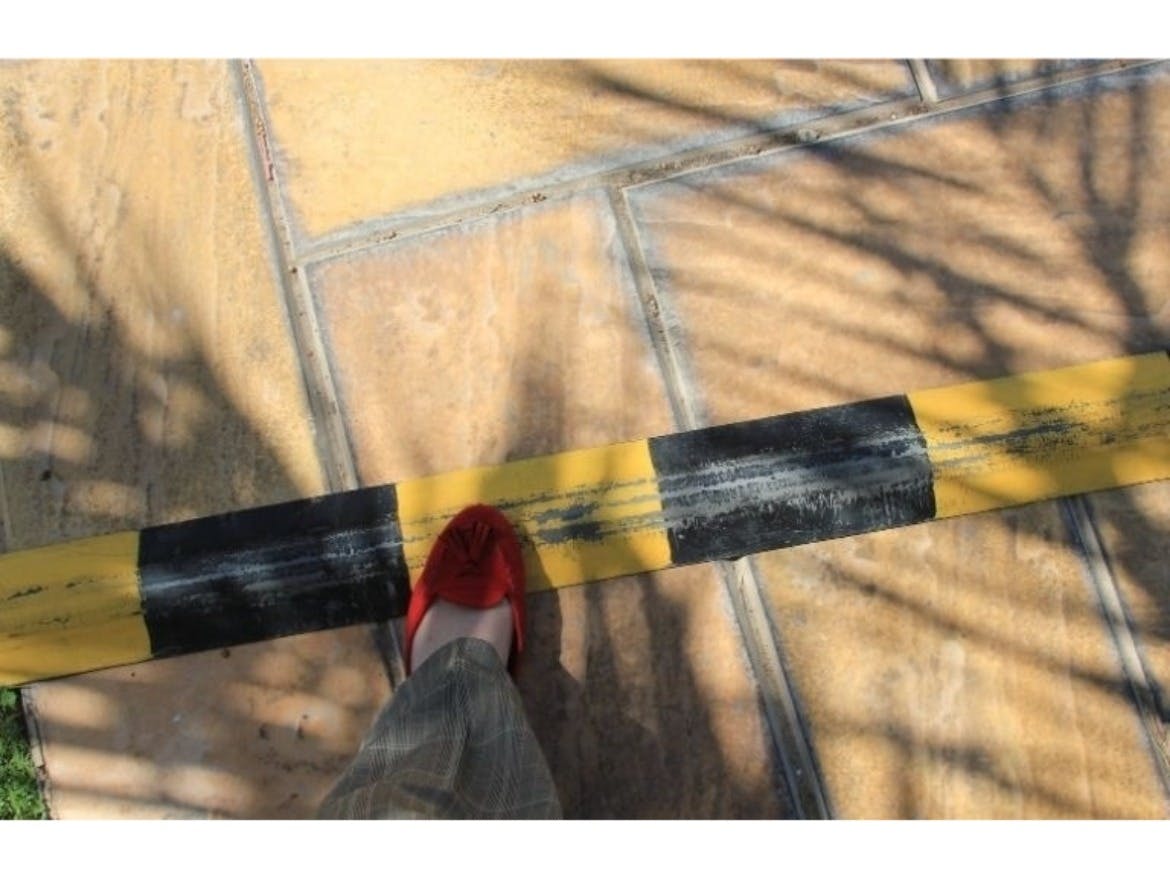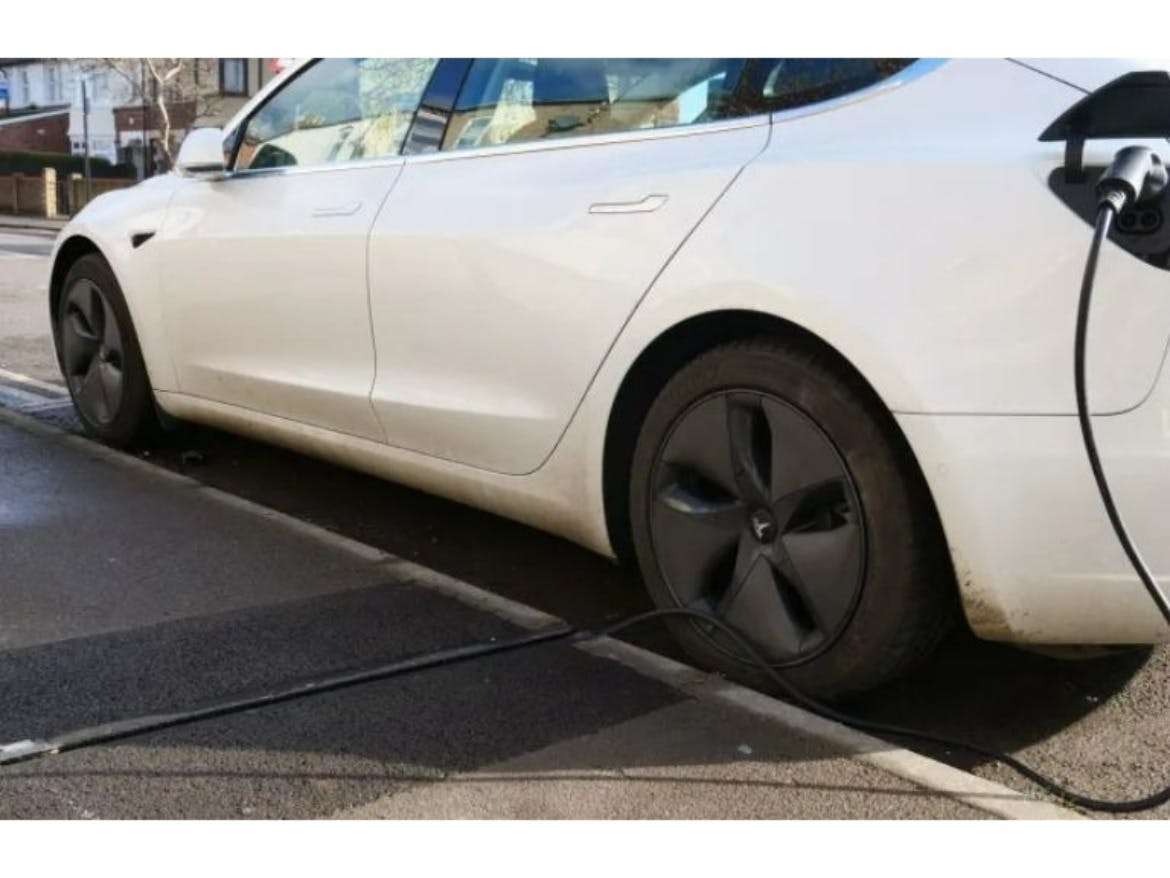
For people with a driveway, charging an electric vehicle (EV) at home is the ideal way to top up the car's battery. Most will charge their vehicle up overnight so it's ready to go at the start of each day. But what about the millions of people out there who can't easily charge up their EV at home? We take a look at some of the solutions out there for people who want to drive an EV, but who don't have access to off-street parking and easy driveway or garage EV charging.
For the vast majority of electric vehicle (EV) drivers, plugging in the car at home is the most convenient way of charging it up. By simply plugging into a home charging wallbox while the vehicle is parked up and setting the charging time to start during off-peak power times, cost and environmentally conscious motorists can wake up to a fully charged EV battery every morning.
This doesn’t work for everyone though. Around 25% of households in the UK don’t have easy access to off-street parking outside their homes, and this can make charging an EV much more complicated. This is because EV drivers who park on the road outside their home are forced to either charge their EV at public or work charging stations or run cables across the pavement that separates their property from their parking spot.
Several issues could affect EV and Plug-In Hybrid (PHEV) drivers who want to charge their vehicle outside their homes in this way. The big questions that most people will be asking themselves are ‘what are the possible legal implications of doing this?’, ‘what would happen if someone injured themselves by tripping over the charging cable?’ and ‘is it possible to safely charge up a plug-in car with extension cables?’
Going Electric? Read The RiDC Report Into Electric Cars & The UK Charging Infrastructure
EV drivers can’t realistically be expected to watch over their cable during the entire charging process, and even if you had a fast charger fitted it would still take many hours to get the battery up to a decent level of charge. So how is it possible to charge your vehicle safely while using on-street parking outside your home?
If you don’t have a driveway, you’ll need to find an area in front of your property as short a distance as possible to run the charging cable from the house or your dedicated outdoor charge point to reach your EV. If the distance is further than the cable that came with your vehicle can accommodate, you may need to order a longer cable or perhaps a suitable extension lead that can be safely used outdoors.
You’ll also need to reduce the chance of someone accidentally tripping over your EV cable. Something to help make the cable more noticeable and easier for pedestrians to step over safely is advisable.
One option would be a brightly coloured cable protector (like the sort commonly found on building sites), which would keep the charging cable in place while also giving the vast majority of passers-by something that they can easily step over or avoid. An EV cable protector can usually be bought for around £20.

Another fantastic idea currently being explored by councils allows EV owners to charge at home even if they don't have off-street parking using a specially designed gully or channel installed into the pavement, like the innovative Gul-e solution from ODS Group.
The channels are designed to sit flush with the pavement surface to minimise the risk of anyone tripping or hindering people in wheelchairs or with prams.
There are no legal restrictions that mean you can’t charge your vehicle with a cable that runs across a pavement, but the Highway Act does give councils the power to remove cables that they think are in unsuitable locations. Some local councils have advised against it, but as the number of EVs on UK roads increases many believe that councils may begin to see the benefits of kerbside charging, especially if new innovations like lamp post charging become more popular.
Kerbside charging posts are already starting to appear up in some areas, and a number of councils have recently been approving EV chargers that are fitted to lamp posts in residential areas. This allows EV drivers to park on the roadside (ideally in front of their own house) and charge up their EV without the power having to come from their own home.

Photo credit: ODS Group
If a passer-by is injured because of your EV cable, it’s possible that you could face a claim from a personal injury lawyer. If you are concerned, it might be wise to check to see if your home or motor insurance policy covers you in case this happens, and consider some of the safer alternative options.
The Local Government Association (LGA) advises that an EV cable should only be placed over a pavement footway when the vehicle is charging and that it should be removed as soon as it’s no longer in use. They also suggest that EV owners consult their local authority's website when considering how best to charge their EV.
This revealing thisismoney.co.uk article gives EV drivers more advice about the possible legal implications, providing readers with the in-depth opinion of a personal injury lawyer and the view of an insurance industry spokesperson.
If connecting your EV to a charging point on or around your property is proving difficult, then you can always take advantage of the public charging network instead. Smartphone apps like Zap-Map will direct you to all the local charging points in your area or while you’re out and about, meaning you can charge your EV while at the supermarket, shopping centre or wherever an EV charge point has been installed. Many councils and public car park operators have successfully applied for grants and installed EV chargers in places like town centre car parks. In fact, the network of public charge points for EV’s recently reached 54779 individual connectors, making it easier than ever to plan long distance journeys. Topping up your car’s battery is getting faster too, with rapid chargers now available at most motorway service stations.
Workplace charging is also becoming much more common. If you’re lucky enough to have a car park at work the government grants currently available make the cost of fitting an EV charger really attractive to employers.
Finally, there’s community EV charging. The Co Charger smartphone app helps EV motorists find and use a privately-owned home charging wallbox. This brilliant idea lets homeowners rent out the EV charger on their driveway to neighbours who have nowhere to install their own charger and commuters who want somewhere to park and charge their vehicle.
The app lets drivers easily find, book and pay for convenient EV charging, and is a handy alternative to public charging points. Co Charger homeowners set an hourly rate (usually £1-3 an hour) for the use of the charger and parking space, which means they get to make a little extra money while also helping the millions of motorists who can’t fit their own charger.
The Motability Scheme is a UK government-backed initiative dedicated to helping people with disabilities, war pensioners and carers drive a brand new, safe, and reliable car.
As a part of their 'worry-free' motoring package, Motability have partnered with Ohme, Easee and BP Pulse to offer a no-cost charging solution to Motability customers who lease a 100% electric car.
Motability customers interested in an EV who don’t have a driveway (or access to suitable off-street parking) can choose a complimentary subscription to the BP Pulse network of public charging points instead of having a home charger fitted.
Motorists with a disability who do have off-street parking can opt for a compact, all-weather home EV charger - fitted by a qualified specialist installer - as a part of the lease at no additional cost.